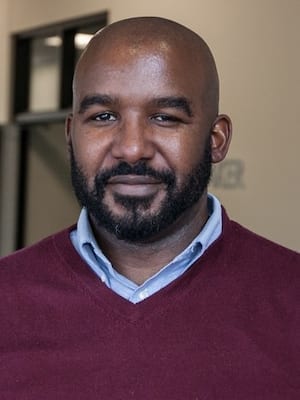
For all his accomplishments as a civil rights leader, Martin Luther King Jr. was first and foremost a pastor.
He knew from an early age that God had called him to serve the church and broader community as a preacher and leader. This calling was nurtured under the shadow of his father, who served as an outstanding model of pastoral and community leadership for the younger King.
King Sr. was not only the pastor of one of Atlanta’s more important Baptist congregations, but he was also a well-respected civil rights leader who regularly fought to gain access to resources and opportunities for Black people in Atlanta, Georgia.
These dually aligned ministries often led to King Sr. experiencing major tensions with not only law enforcement, but also with white faith leaders. It is clear that King Jr. followed in his father’s footsteps.
King Jr.’s first, and only, solo pastor position was a six-year tenure at the Dexter Avenue Baptist Church in Montgomery, Alabama. He later served as co-pastor of Ebenezer Baptist Church in Atlanta, alongside his father.
While King Jr. served Dexter Avenue, he was invited to participate in Montgomery’s civil rights movement due to his growing reputation as a pastor and preacher. His career as a civil rights leader was solidified through this opportunity.
Much of the rhetoric King Jr. employed as a civil rights leader was developed during his pastorates at Dexter Avenue and Ebenezer. His weekly sermons eventually became chapters within his most important books.
Catchphrases and one-liners that found their genesis in the pulpits of Dexter Avenue and Ebenezer were repeated on nationally televised weekly talk shows and employed on multiple debate stages. But no matter how much King’s audience grew or civil rights work called, he always found his way home to regularly preach to his people.
One of his sermons preached at Dexter Avenue in 1956 reminds us of King’s heart and concern for people of faith, above and beyond fights for racial or economic equality. As a pastor, he was concerned about how a person could retain their faith in God when evil was so prevalent in the world, and when it did not seem like God could or would do anything about that evil.
In the sermon “Our God is Able”, King said: “There are times when each of us is forced to question the ableness of our God. When we notice the stark and colossal realities of evil … the long ruthlessness of earthquakes and tornadoes … when we are forced to experience the grim tragedies of war and man’s inhumanity to man, we find ourselves asking, why does all of this exist if God is able to prevent it. … We can say that in spite of these glaring dimensions of evil, and the occasional doubts that come to all of us there is the perennial conviction that ‘our God is able.’”
Throughout his pulpit ministry and civil rights leadership, King Jr. told the world that one of the ways God combated evil was through the acts of kindness that people performed towards each other.
Although God had previously worked to protect and free God’s people through miracles, like the 10 plagues and the parting of the Red Sea, God had now chosen to use ordinary human beings as God’s conduit for protection and love.
God wants to use anyone willing to facilitate restoration and renewal of human relationships, intentionally choosing to work through the lives and actions of ordinary and insignificant people whose lives are not perfect. This is one of the major components of God’s story in the Bible.
God works through ordinary, everyday and mundane relationships to bring about the changes in the world that God wanted, King emphasized. These imperfect relationships become the channels through which God brings hope to everyone.
King’s message is still relevant today.
God is able to combat evil through our acts of love toward each other. God’s loving salvation can be experienced through people we never anticipated. May we remember this fact when evil seems too big or too strong to overcome.
God is able to bring about justice, reconciliation and restoration through people whose lives are imperfect and who also are trying to figure out what God is doing. May we remember this, not just around the time of King’s birth or death, but every day.
Editor’s note: This article is part of a series this week to call attention to Monday, January 16, 2023, as Martin Luther King Jr. Day. The previous articles in the series are:
We Shall Overcome: Reviewing the Concept, Refocusing the Vision, Revisiting the Strategy | Chris Smith
Martin Luther King Jr.: An Exemplar of Prophetic Citizenship | Wendell Griffen
A pastor, author and educator living in St. Louis, Missouri, he is the author of several books, including The Gospel According to Broadway and Taking Apart Bootstrap Theology: Gospel of Generosity and Justice.

